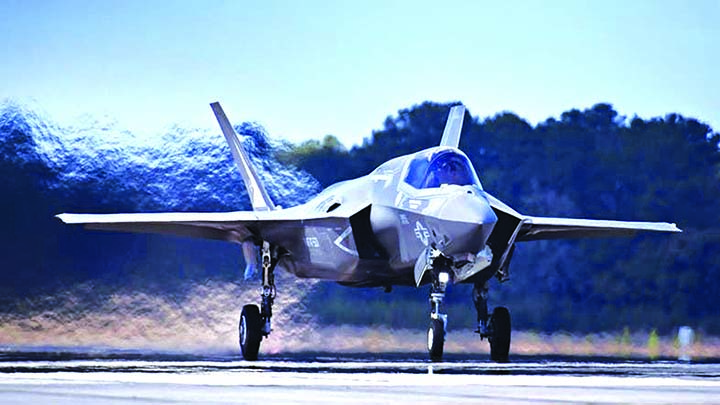
PTI, Washington :
The US is keen to make its defence partnership with India stronger, the Pentagon has said, but made it clear that it is against any country purchasing military equipment, including the S-400 missile defence system from Russia, that is designed to counter America’s sophisticated fifth-generation aircraft.
The remarks by a top Pentagon official came in response to a question on India going ahead with its decision to purchase the S-400 missile defence system from Russia.
India inked an agreement with Russia last October to procure a batch of the S-400 missile systems at a cost of Rs. 40,000 crore.
“Our defence partnership with India I think is strong and we’re looking to make it ever stronger,” David J Trachtenberg, the deputy under secretary of defence for policy, told reporters at a news conference on Wednesday.
When asked if the US can have a major defence partnership with India, which is going ahead with a decision to buy the S-400, Mr Trachtenberg said, “I think the message we are sending is that we want to make sure that other countries are not purchasing equipment that is designed to counter our sophisticated fifth-generation aircraft.”
“The other message we’re sending is that we are consistent in our approach on this.”
Mr Trachtenberg’s comments also come a day after President Donald Trump has announced that the US would not sell the F-35 fighter jets to Turkey after Ankara purchased the S-400 missile defence system from sanctions-hit Russia.
David Trachtenberg said America’s decision to unwind Turkey’s participation in the F-35 programme was no surprise as its concerns had repeatedly been communicated to the Turkish government.
“Our reaction today is a specific response to a specific event. It is separate and distinct from the broader range of security interests where the United States and Turkey work together against common threats,” he said.
The official said the military-to-military relationship between the two countries remained strong. He added that the US would continue to participate with Turkey in multilateral exercises, as well as engage with the country on a broad range of NATO issues.
“While Turkey’s decision is unfortunate, ensuring the security and integrity of the F-35 programme and the capabilities it will provide to our partners remains our top priority,” Mr Trachtenberg said.
Undersecretary of Defence for Acquisition and Sustainment Ellen Lord said when Turkey began publicly discussing its interest in the Russian-made missile defence system since early 2017, the US government had consistently communicated that the F-35 and S-400 were incompatible.
“Turkey cannot field a Russian intelligence collection platform in proximity to where the F-35 programme makes repairs and houses the F-35. Much of the F-35 strength lies in its stealth capabilities,” she said.
“So, the ability to detect those capabilities would jeopardise the long-term security of the F-35 programme,” she said.

